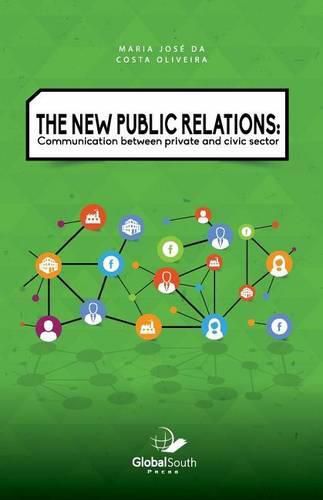Readings Newsletter
Become a Readings Member to make your shopping experience even easier.
Sign in or sign up for free!
You’re not far away from qualifying for FREE standard shipping within Australia
You’ve qualified for FREE standard shipping within Australia
The cart is loading…






Imagine a society where barriers between the social sectors become permeable: the first sector (the State) would adulterate the second and third sectors (the market and civil society), and vice versa. As a result, the mass media and social networks as fourth sector would fill the spaces of debate and mutual influence with other sectors. And to complete the process of interaction, universities as producers of knowledge and fifth sector, would include the agents and beneficiaries of knowledge, covering the most diverse social strata. In addition to this scenario, there is the transition of a representative to a participatory system, endowed with a progressive appreciation of the individual and collective human being . Here is where the topics covered by Maria Jose da Costa Oliveira’s book are inserted. In this imaginary world to the experience of citizens, corporations become involved in assignments previously restricted to the State, civil society, the media and universities - without losing, however, its market perspective. Since this is possible, it is now a challenge of research and theories in various fronts of human knowledge. And this same process is repeated for each of the aforementioned sectors, which would inherit characteristics that before were unaware to them. This cross-pollination would imply, however, on some possibilities and perplexities. For example, the greater or lesser distinction between public and private; the institutional and personnel; statal and non-governmental; the corporate and societal; advertising, marketing and public communication; lobbying and political communication; etc. The book by Maria Jose da Costa Oliveira effectively discusses the effects of this cross-pollination of corporations, in a perspective from above all conveyable . Thus, the author comparatively analyzes the degree of public sensitivity (first sector), social (third sector), communication (fourth sector) and education (fifth sector) of the corporations positioned in the second sector. In other words, the author seems to be interested in the convergence between the stockholders and stakeholders in a context of broad participation and debate in the defense of common interest.
$9.00 standard shipping within Australia
FREE standard shipping within Australia for orders over $100.00
Express & International shipping calculated at checkout
Imagine a society where barriers between the social sectors become permeable: the first sector (the State) would adulterate the second and third sectors (the market and civil society), and vice versa. As a result, the mass media and social networks as fourth sector would fill the spaces of debate and mutual influence with other sectors. And to complete the process of interaction, universities as producers of knowledge and fifth sector, would include the agents and beneficiaries of knowledge, covering the most diverse social strata. In addition to this scenario, there is the transition of a representative to a participatory system, endowed with a progressive appreciation of the individual and collective human being . Here is where the topics covered by Maria Jose da Costa Oliveira’s book are inserted. In this imaginary world to the experience of citizens, corporations become involved in assignments previously restricted to the State, civil society, the media and universities - without losing, however, its market perspective. Since this is possible, it is now a challenge of research and theories in various fronts of human knowledge. And this same process is repeated for each of the aforementioned sectors, which would inherit characteristics that before were unaware to them. This cross-pollination would imply, however, on some possibilities and perplexities. For example, the greater or lesser distinction between public and private; the institutional and personnel; statal and non-governmental; the corporate and societal; advertising, marketing and public communication; lobbying and political communication; etc. The book by Maria Jose da Costa Oliveira effectively discusses the effects of this cross-pollination of corporations, in a perspective from above all conveyable . Thus, the author comparatively analyzes the degree of public sensitivity (first sector), social (third sector), communication (fourth sector) and education (fifth sector) of the corporations positioned in the second sector. In other words, the author seems to be interested in the convergence between the stockholders and stakeholders in a context of broad participation and debate in the defense of common interest.